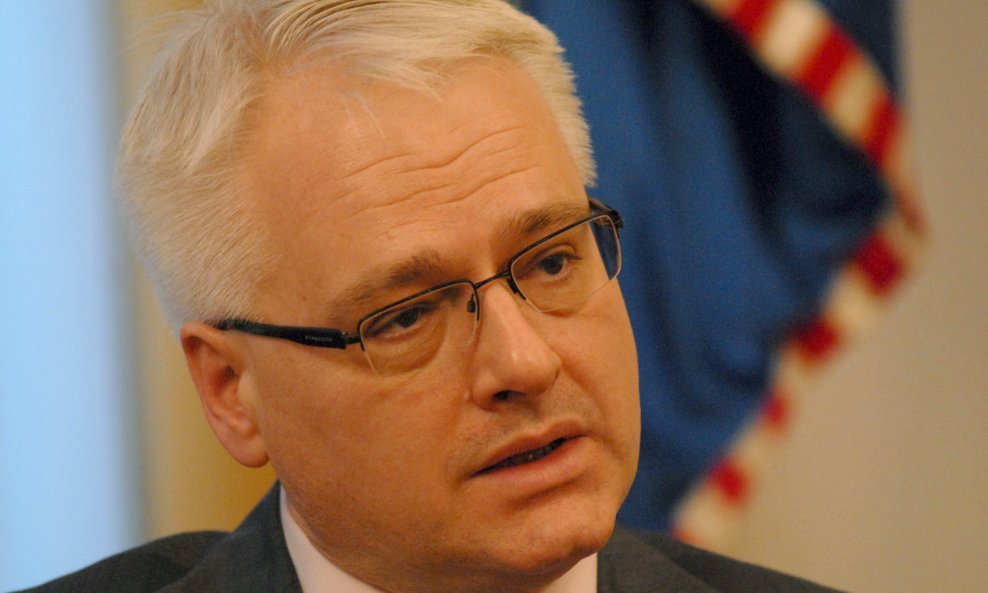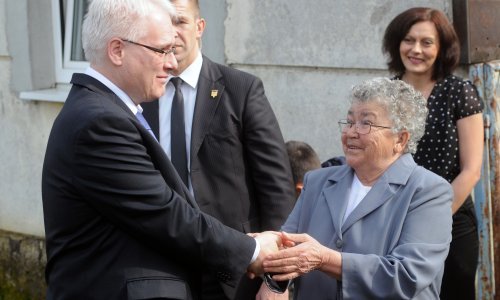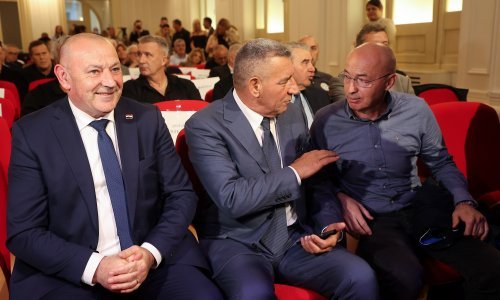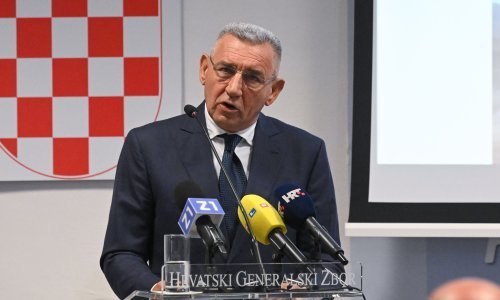Croatian President Ivo Josipovic has said he believes that the decline in public support for Croatia's EU entry after the verdict of the Hague war crimes tribunal in the case of Croatian generals Ante Gotovina, Ivan Cermak and Mladen Markac "is a temporary development because the European Union had nothing to do with the verdict since the Hague tribunal is a UN court, not an EU court."
"The verdicts were not made within the EU, there is no direct link between the EU and the verdicts," Josipovic said in an interview with Croatian Radio while commenting on opinion polls which show that after the announcement of the verdicts against the three generals only 23 percent of Croatians support the country's EU entry.
Josipovic said he was confident that Croatian citizens, once a referendum on EU entry was held, would recognise all the benefits of EU membership.
Asked if Croatia might re-consider its cooperation with the Hague tribunal in light of the latest verdicts, Josipovic said such a move would result in Croatia's being shut out of the international community, something he said he was not willing to support.
He stressed that according to information available to him, the Croatian government submitted to the generals' defence teams all documents they had requested, which he said could be easily checked.
He recalled that in the case of Bosnian Croat commander Tihomir Blaskic the then Croatian authorities obstructed Blaskic's defence, after which a new government provided the requested documents.
"As far as I know, in the case of generals Gotovina and Markac the government gave all the documents requested by the defence teams," said Josipovic.
He warned that the verdict against Gotovina, Markac and Cermak proved Serbia's involvement in the military aggression against Croatia. The description of the international conflict in the indictment shows that the Serb forces in Croatia's occupied areas were controlled from Serbia, he said.
Josipovic reiterated that describing Croatia's defence as a joint criminal enterprise was unacceptable, adding that "as a law-based country, Croatia will accept the legal aspects of the verdict, but the political and historical aspects are difficult to accept if that interpretation criminalises the entire Homeland War."
Asked if the verdict was in a way a verdict against Croatia's first president Franjo Tudjman and former defence minister Gojko Susak, Josipovic said that it was an unpleasant statement which did not affect only those two officials from Croatia's past, but some other people as well. He added, however, that verdicts always referred to individual people.
"The verdict refers only to the individual guilt of the persons who were on trial, persons who were not tried were not convicted," said Josipovic.
Asked if the transcript of the Brijuni meeting, one of the elements crucial for the verdict, was sent to the Hague tribunal in a legal way, Josipovic recalled that in 1996 Croatia passed a constitutional law pledging to fully cooperate with the Hague tribunal.
What is happening now, the levelling of accusations against this or that official, or this or that government for their cooperation with the tribunal, is not good, Josipovic said.
Commenting on Serbian President Boris Tadic's statement that verdicts like the one in the case of the three Croatian generals would contribute to reconciliation in the region, Josipovic said: "I am not sure that this verdict contributes to equity, but most definitely it was not made either by the EU or by Serbia, so it should not have an impact on what is of benefit to both countries, Croatia and Serbia," Josipovic said, adding that he was confident that the process of reconciliation would continue.



































